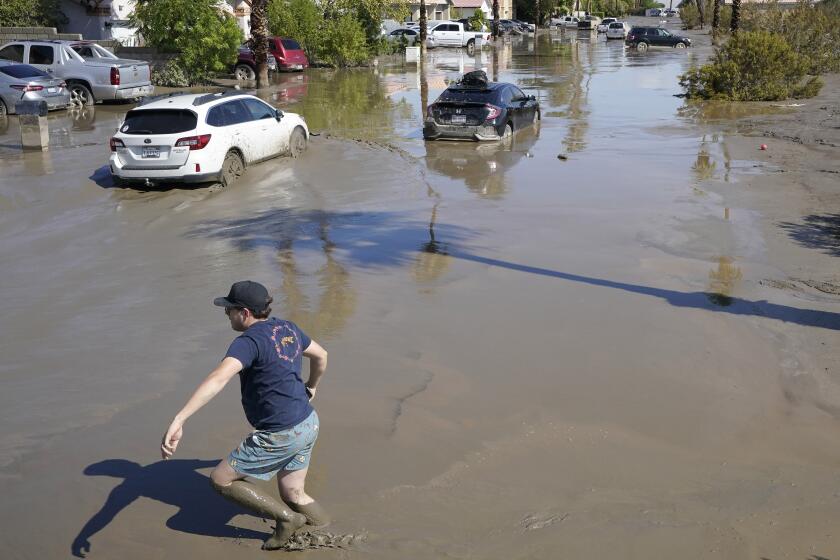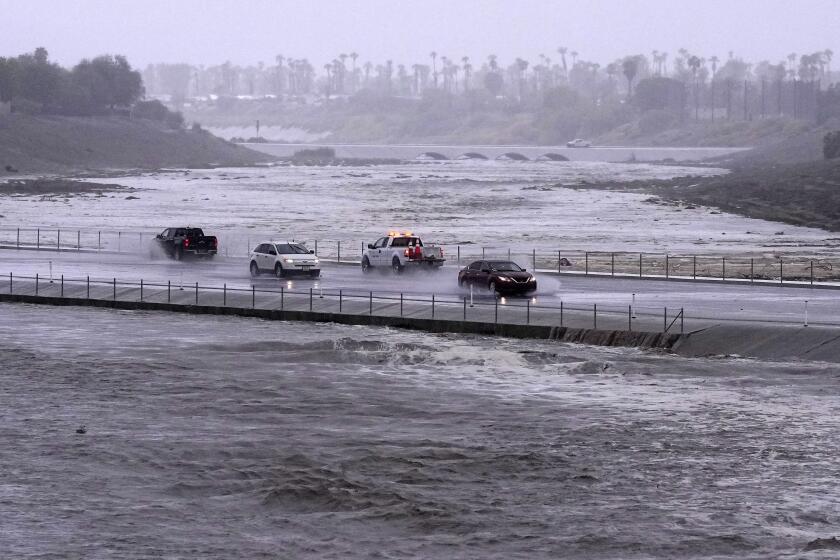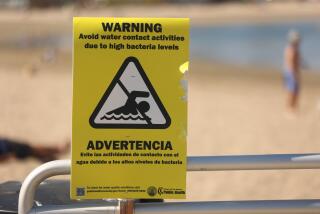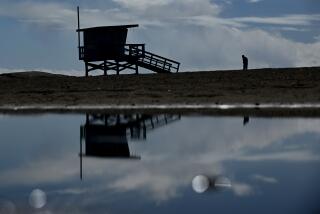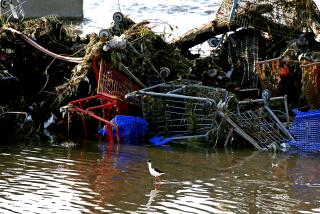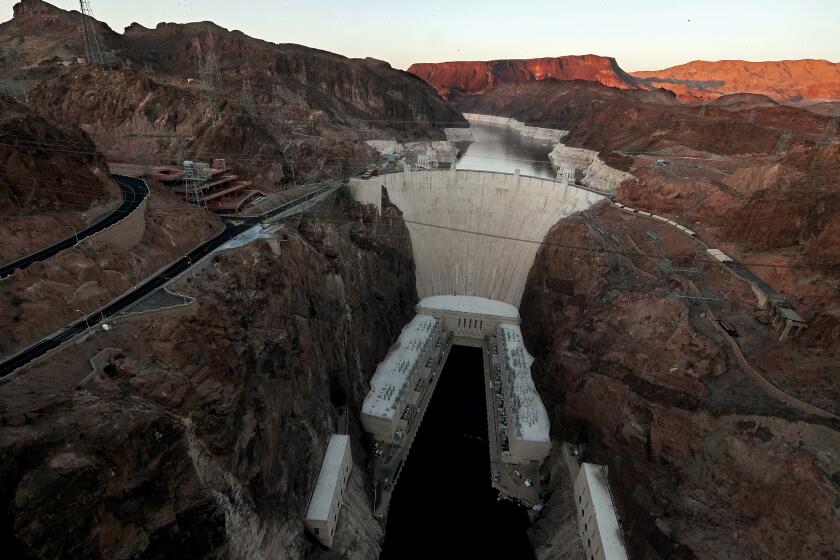Stay out of the water: In Hilary’s aftermath, officials warn of unhealthy beach conditions
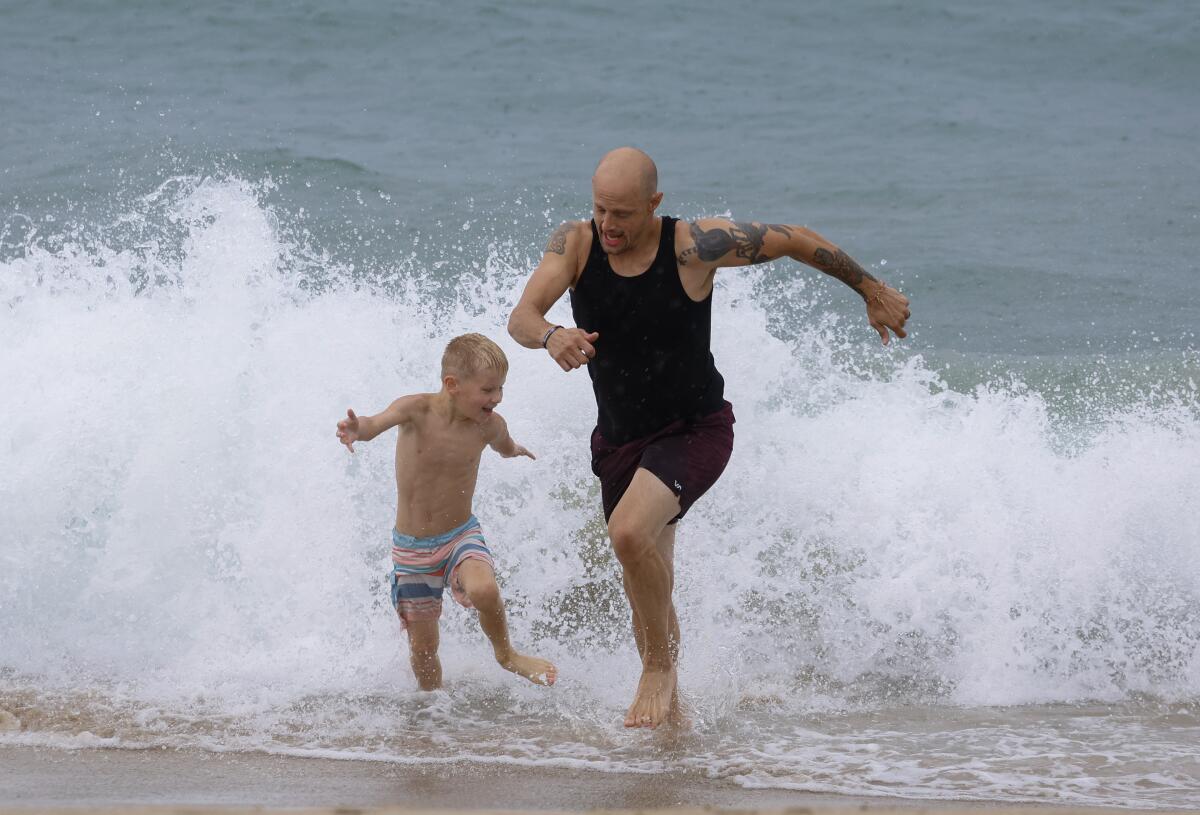
Stay out of the water.
Although Los Angeles County beaches managed to avoid significant damage from Tropical Storm Hilary, officials have warned beachgoers to avoid swimming, surfing and playing in ocean water due to unhealthy conditions.
The L.A. County Department of Public Health has issued an ocean water quality rain advisory until 9 a.m. on Thursday, and noted that the warning period could be extended depending on further showers.
It is common for bacteria levels in coastal waters to increase after storms, as rainfall flushes contaminants such as litter, trash, fertilizers, pet waste, metals and car fluids from streets into the ocean via rivers, creeks and storm drains. Bacteria levels typically remain high for at least 72 hours after a storm. The risk of illness is higher for children and the elderly.
The first tropical storm to hit Los Angeles in 84 years dumped record rainfall and turned streets into muddy, debris-swollen rivers.
On Monday afternoon, public officials were still assessing damage to county beaches and facilities. Despite the storm breaking daily rainfall records across the region, local beaches appear to have escaped serious damage, officials said.
“Overall, we made it through OK,” said Nicole Mooradian, public information specialist with the county’s Department of Beaches and Harbors, in an email. “We saw erosion at our most vulnerable beaches, but it could have been much worse.”
Crews saw significant erosion at Redondo Beach, around the storm drains, she said, as well as some erosion around a parking lot at Point Dume in Malibu. A restroom in Topanga Beach suffered some internal damage too.
A video captured by SkyCal on Monday morning released on CBS News showed storm damage near the Queen Mary in the Long Beach harbor, where pieces of a dock were destroyed. No boats appeared damaged, but large amounts of trash and storm runoff could be seen floating on the water.
In Santa Monica on Sunday, at least two large flows of street runoff some 15 yards wide rushed into the ocean, carrying trash and debris. In Marina del Rey, trash carried by stormwater flowed down Ballona Creek toward the ocean before city-maintained booms and a trash interceptor captured it.
Although large storms can affect drinking water quality, the county department of public health said it is not aware of any effects to local water systems. But it did advise homes or businesses supplied by private wells affected by flooding to look for debris and mud around the well. Visible damage to the well casing, a loose cap, and mud stains could indicate that water within the well and distribution system may be contaminated and affect drinking water quality.
Tropical Storm Hilary blew past daily rainfall records across Southern California, “just smashing” records across L.A. and Ventura counties.
“If well owners believe that their well has been contaminated, they should discontinue using their well water for drinking and cooking purposes and use only disinfected or bottled water and contact a qualified professional for service,” the county said in an email.
The tropical storm, the first to make landfall in Southern California in 84 years, broke daily rainfall records across the region. Los Angeles International Airport received 2.54 inches of rain and Long Beach Airport reported 2.62 inches, compared with their previous records of “a trace” of rain, weather service meteorologist Rich Thompson said. Culver City got 3.65 inches, Santa Monica 3.56, and the South Bay cities Redondo Beach and Hawthorne tallied 2.47 and 2.24 inches, respectively.
All state beaches in Orange and San Diego counties remained closed on Monday due to the storm.
More to Read
Sign up for Essential California
The most important California stories and recommendations in your inbox every morning.
You may occasionally receive promotional content from the Los Angeles Times.
